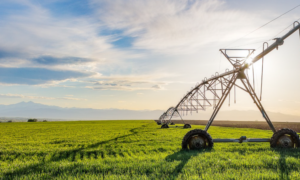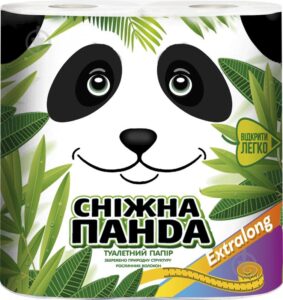
On November 16, 2024, the Institute for Reintegration, Rehabilitation and Professional Development of Veterans “Architecture of Resilience” of the Kyiv National University of Construction and Architecture held an event “Children’s Health during War: How to Protect and Improve”. The speaker at the event was the Institute’s specialist, pediatric neurologist Denys Boychuk. The event was held as part of the support for veterans’ families and was aimed at strengthening the mental and physical health of children in modern conditions.

Since the beginning of the war, children have become one of the most vulnerable categories of society, as constant stress, change of environment and a sense of danger significantly affect their mental and physical condition. Therefore, the issue of providing comprehensive support to children and their parents is extremely important to help them overcome the challenges of the modern world.

As part of the event, parents had the opportunity to take part in a seminar where Denys Boychuk spoke about important aspects of children’s health in times of crisis, how to recognize stress disorders in children, and what approaches can be useful to support their emotional state. In addition, the expert provided advice on physical activity, sleep patterns, nutrition, and communication with children, especially in crisis situations.

While the adults were immersed in the important topics of the seminar, the children had fun and beneficial time with the specialists of the Kyiv City Employment Center engaged in career guidance. Interesting games and exercises were organized for them to help them discover the world of different professions, in particular, to get acquainted with the profession of an architect and a builder. Students in grades 8-11 were also given a career guidance test that allowed them to better understand their own interests and potential, which may make it easier to choose a future profession. In addition, children had the opportunity to learn more about the specialties offered by the Kyiv National University of Construction and Architecture. The Department of Environmental Protection Technologies and Labor Protection conducted a tour of its laboratories – water, earth and air.

This event was an important step in supporting veterans’ families by providing them with effective tools to keep their children healthy, as well as an opportunity for children to broaden their horizons and learn about potential professional fields. Such initiatives not only help to overcome the psychological consequences of war, but also strengthen society by contributing to the formation of a more resilient and conscious generation.
The Institute of Reintegration, Rehabilitation and Professional Development of Veterans “Architecture of Resilience” of KNUBA plans to continue organizing such events, involving leading experts and partners, to support veterans’ families in this difficult time.
Architecture of Resilience, children's health, Institute of Reintegration

In January-September of this year, the manufacturer of agricultural machinery and special vehicles, Fregat Plant JSC (Pervomaisk, Mykolaiv region), increased its net sales revenue by 42.4% year-on-year to UAH 134.7 million.
According to the company’s financial report published in the National Securities and Stock Market Commission’s (NSSMC) information disclosure system, its loss increased 5.4 times to UAH 41.6 million due to a 7.5-fold increase in expenses under the “other expenses” item to UAH 48 million.
For its part, the plant earned UAH 50.7 million in gross profit, up 46.4% compared to January-September 2023, and its operating profit almost tripled to UAH 16.4 million.
As reported, in the first half of this year, the plant increased its loss by 5.8 times compared to the same period in 2023, to UAH 29.14 million, while revenue increased by 56.3% to UAH 99.2 million.
Thus, in the third quarter of 2024, the plant increased its loss by UAH 4.7 million to UAH 12.4 million, while net income increased by 14% to UAH 35.5 million.
Fregat specializes in the production of irrigation systems, road fencing, metal structures, as well as engineering products and special-purpose machinery.
The company exports road safety fences to Germany, the Netherlands, Poland, and the former CIS countries (except Russia and Belarus), where it also supplies agricultural machinery for crop production.
The main foreign customers are BBV Baustahl und Blechverarbeitungsgesellschaft mb, Scuer GmbH (Germany), Meerman Technisch Buro B.V. (Netherlands), and Agrorada (Poland).
As of October 1 this year, the average number of employees was 240, with an average salary of UAH 11.5 thousand.
In 2023, the plant reduced its net loss by 5.4 times compared to 2022, to UAH 25.8 million, while net income decreased by 16% to UAH 140 million.
As of the third quarter of 2024, Fregat Engineering Limited (Cyprus) owns more than 96.25% of the authorized capital of Fregat Plant JSC, and the ultimate beneficiaries, according to opendatabot, are members of the Dementienko family from Dnipro.

The Pre-Trial Chamber of the International Criminal Court (ICC) has issued arrest warrants for Israeli Prime Minister Benjamin Netanyahu and former Israeli Defense Minister Yoav Galland for crimes against humanity and war crimes.
“The Pre-Trial Chamber has issued arrest warrants for two individuals, Mr. Benjamin Netanyahu and Mr. Yoav Galland, for crimes against humanity and war crimes committed at least between October 8, 2023, and at least May 20, 2024, the date on which the prosecution filed the request for arrest warrants,” the ICC website said on Thursday.
The Pre-Trial Chamber reportedly ruled on two requests filed by Israel on September 26, 2024.
“In the first request, Israel challenged the Court’s jurisdiction over the situation in the State of Palestine in general and over Israeli citizens in particular, pursuant to Article 19(2) of the Statute. In the second request, Israel requested the Chamber to order the Prosecutor’s Office to provide a new notification of the commencement of the investigation to its authorities pursuant to Article 18(1) of the Statute. Israel also requested the Chamber to discontinue any proceedings before the Court in the relevant situation, including the consideration of the applications for arrest warrants for Mr. Benjamin Netanyahu and Mr. Yoav Gallant filed by the Prosecutor’s Office on May 20, 2024,” the statement said.
The Chamber noted that Israel’s acceptance of the Court’s jurisdiction was not necessary, as the Court could exercise its jurisdiction on the basis of Palestinian territorial jurisdiction, as determined by the Pre-Trial Chamber I in its previous composition. In addition, the Chamber considered that, pursuant to Article 19(1) of the Statute, States are not entitled to challenge the Court’s jurisdiction under Article 19(2) before the arrest warrant is issued. Israel’s objection is therefore premature. This is without prejudice to any future possible objections to the Court’s jurisdiction and/or admissibility in any particular case.
It is noted that the Chamber also rejected Israel’s request under Article 18(1) of the Statute. “The Chamber recalled that the Prosecution notified Israel of the commencement of the investigation in 2021. At that time, despite a request for clarification from the prosecution, Israel decided not to file any requests for a continuance. In addition, the Chamber decided that the parameters of the investigation in this situation remained unchanged, and, as a result, no new notification to the State of Israel was required. In light of this, the judges concluded that there were no grounds for discontinuing the consideration of the applications for arrest warrants,” the statement said.
The Chamber found reasonable grounds to believe that Mr. Netanyahu, born on October 21, 1949, the Prime Minister of Israel at the time of the relevant act, and Mr. Gallant, born on November 8, 1958, the Minister of Defense of Israel at the time of the alleged act, are criminally responsible for the following crimes as accomplices for committing acts together with other persons the war crime of starvation as a method of warfare; and crimes against humanity of murder, persecution and other inhumane acts; and crimes against humanity of murder, persecution and other inhumane acts.
The Chamber also found reasonable grounds to believe that Mr. Netanyahu and Mr. Gallant are criminally responsible as civilian commanders for the war crime of intentionally directing an attack against a civilian population.
As reported, on April 20, 2024, it became known that the Prosecutor of the International Criminal Court (ICC), Kareem Khan, is requesting arrest warrants for Israeli Prime Minister Benjamin Netanyahu, Israeli Defense Minister Yoav Gallant, and the heads of the Islamic Movement of Hamas, the military wing and the political bureau of Hamas in connection with war crimes and crimes against humanity of October 8, 2023, according to the ICC website.

Starting December 15, Ukrzaliznytsia JSC (UZ) will launch a daily direct train between Kyiv and Budapest.
“Starting December 15, we will launch a daily direct train Kyiv – Budapest. Train No. 9/10 on this route will be another – already the 20th – international train of Ukrzaliznytsia,” the UZ press service said on Telegram on Thursday.
The train will run in standard sleeping cars: compartment (4 seats) and suite (2 seats).
“A lot of diplomatic work preceded the appointment of this flight, so that wide cars in the amount of at least eight per flight could deliver Ukrainians from/to the Hungarian capital. It is here that the Ferenc Liszt Airport is located, the largest airport in the region, many of whose flights are now synchronized with the Ukrainian train,” the press service quoted Oleksandr Pertsovsky, Chairman of the Board of UZ, as saying.
The train will depart from Kyiv at 10:16 and arrive in Budapest at 06:00. In the opposite direction: departure from Budapest at 22:40, arrival in Kyiv at 19:11. The cost of a ticket in a compartment carriage is approximately UAH 3 thousand.

In January-October of this year, Izmail Pulp and Cardboard Mill (Izmail Pulp and Cardboard Mill, Odesa region) produced 13.5 million square meters of cardboard boxes, up 13% over the same period in 2023, according to statistics from UkrPapir Association.
According to the statistics provided to Interfax-Ukraine, the plant also slightly (by 0.7%) increased its output of corrugated cardboard components (containerboard and corrugated paper) to 7.3 thousand tons during this period.
In particular, in October, the ICCC increased the production of corrugated packaging by 18.3% by October 2023 and by a quarter by September this year – up to 1.45 million square meters.
In monetary terms, in January-October, the ICCC increased its production by 6% to UAH 220.4 million.
As reported with reference to the association’s data from the main industry enterprises, in January-October, paper and cardboard production in Ukraine increased by 2.8% compared to the same period in 2023 – to almost 496 thousand tons, cardboard boxes – by 15.1%, to 490 million square meters.
Izmail Pulp and Paper Mill produces corrugated cardboard, corrugated containers and cardboard packaging. The main raw material is waste paper.
According to UkrPapir, in 2023, the plant increased its production by 7.5% compared to 2022, to UAH 253.5 million, and increased its output of corrugated packaging by 27% to 14.9 million square meters, and containerboard by 13.7% to 8.4 thousand tons.
The main consumers of the company’s products are located in Mykolaiv, Odesa, Dnipro, Kyiv, Vinnytsia and Kharkiv regions, including Shabo, Odeskokonditer, Promtekhtorg, and OKZ.

Bloomi LLC (Odesa), a manufacturer of sanitary and hygienic paper products under the Snow Panda brand, produced products worth UAH 330.3 million in January-October, up 10.3% compared to the same period in 2023.
According to statistics provided by UkrPapir Association to Interfax-Ukraine, in physical terms, in particular, the production of toilet paper increased by 14.2% to 42.1 million rolls.
As reported, over the past 10 months, Ukraine’s major sanitary paper producers produced a total of 533.34 million rolls of paper, up 6.3% year-on-year.
Bloomi, which was registered in 2014, produces pulp-based sanitary products (toilet paper, napkins, towels) from imported base paper. The products are manufactured at the facilities of Omega Brokers PE, one of the leading Ukrainian manufacturers of detergents, disinfectants and sanitary products.
In 2023, the company almost doubled its production volume by 2022 to UAH 367.3 million.
The company is co-owned equally (25% each) by four Odesa-based entrepreneurs.